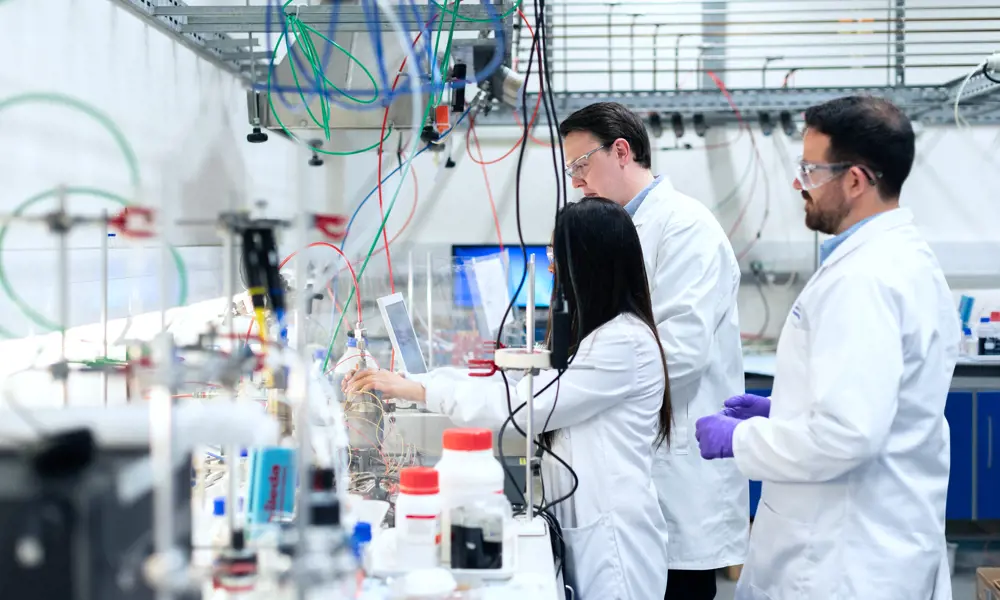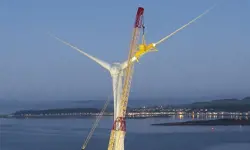
How can the UK solve its carbon problem?
What can a small island like the UK do to address the global problem of climate change, when it contributes just over 1% of the world’s CO2 emissions – compared to around 29% from China? Even if the UK is no longer a leading economy or a leading world power, the starting point is to stop making climate change worse. This is what net zero by 2050 is supposed to achieve. The Committee on Climate Change (CCC), which advises the UK and devolved governments on emissions targets, claims that “by reducing emissions produced in the UK to zero, we also end our contribution to rising global temperatures”.
The ambition to stop causing climate change is a good one, but it is neither quite as straightforward as the CCC claims, nor is it enough. To address global warming, we must address global emissions. The largest share of these comes from China now, and will come from China, India and Africa for the next few decades at least.
Recognising the UK's contribution to global emissions
The net-zero target is for territorial carbon production. It focuses on emissions in the UK. But a moment’s reflection tells us that our carbon footprint goes way beyond emissions from local production. We are a trading nation: China makes lots of that very polluting stuff.
The easy way to help meet the net-zero target is to close down the rest of the UK’s carbon-intensive production in petrochemicals, steel and cars, and to import it from China instead. That would make climate change worse but would flatter the UK’s net-zero target. Indeed, that is what has been going on in the UK and the EU for the past 30 years. In that period, every year the concentration of carbon in the atmosphere has gone up relentlessly, at around two parts per million (ppm) to now well over 400 ppm. The great economic export-oriented carbon-intensive growth of China has been driven in part by consumption in the UK, the EU and the US.
Once this is recognised, the unilateral aim to make no further contribution to climate change becomes net-zero carbon consumption, not net-zero territorial carbon production
Once this is recognised, the unilateral aim to make no further contribution to climate change becomes net-zero carbon consumption, not net-zero territorial carbon production. It means we must get serious about carbon imports, and the most efficient answer is to have a carbon tax applied to all sectors of the economy and imports. It should capture the big, so far neglected, emissions from transport, heating and agriculture, not just electricity, and treat imported steel on the same basis as UK steel.
A uniform general carbon tax is a necessary condition if we are to make no further contribution to climate change. But we can do much better both at home and abroad.
Low-carbon infrastructure for a low-carbon economy
A low-carbon economy needs low-carbon infrastructure, as well as R&D and new technologies. We need home infrastructures for decentralised electricity systems, for electric transport, smart charging and smart roads, and for offshore networks for wind generation and for carbon capture and storage (CCS) in the depleted North Sea oil and gas wells – all joined up with smart data and fibre.
The striking thing about the infrastructure requirements is how little we have done so far and how piecemeal and incremental the plans are. The economic regulators have not yet understood the scale of the challenges and how inappropriate the five-year periodic reviews of the network companies are. What the UK needs are joined-up net-zero infrastructure plans, running out to 2030 and to 2050, on a scale that we have not seen since the reconstruction of the electricity networks after the Second World War.
What the UK needs are joined-up net-zero infrastructure plans, running out to 2030 and to 2050, on a scale that we have not seen since the reconstruction of the electricity networks after the Second World War
How can the UK help others with their emissions?
All the above would make a good start, but it would have almost no impact on what others do. A perfect UK in a sea of high-polluting large-world economies would not halt the rise in carbon concentration in the atmosphere. If we want to make a difference, we need to look outwards as well as inwards. The question is: what can the UK do to help others crack their emissions? The answer is a mix of geography, science and technology.
Starting with geography, the UK has two key advantages in the global climate context. It has the shallow North Sea, with its depleted offshore oil and gas wells, its existing oil and gas pipelines, and the fact that it is windy. The North Sea is one of the best places in the world to try out CCS. It is also one of the best places for offshore wind. Irrespective of the impact on UK territorial emissions, any coherent global approach would want to draw on offshore wind and CCS, and the technological advances that come from their deployment at scale. The UK can pass on to the world the lessons that it learns and the technologies it deploys.
The UK has a science and technology base way beyond its economic size. It has R&D capabilities and universities in the top rank in the world. That capability ranges across physical and biological sciences, and is witnessed in meteorology and climate modelling; nuclear and renewables technologies; and in vaccines and other medical advances. This is the area where the UK could make most impact on climate change, developing a host of new technologies and giving them to the world. What it is not good at is deploying them: the UK has been a science powerhouse while its manufacturing capability has eroded to a measly 20% of the UK economy. The UK is a services economy: science is a key service. We need to make more of it.
***
This article has been adapted from "How can the UK solve its carbon problem", which originally appeared in the print edition of Ingenia 85 (December 2020).
Contributors

Dieter Helm CBE is Professor of Economic Policy at the University of Oxford and Fellow in Economics at New College, Oxford. He has provided extensive advice to UK and European governments and served as a special advisor to the European Commissioner for Energy. His new book Net Zero: How We Stop Causing Climate Change was published in September by Harper Collins.
Keep up-to-date with Ingenia for free
SubscribeRelated content
Energy

Algae-powered architecture
An apartment block in Hamburg in Germany has been built that uses microalgae placed within its façade to generate heat and biomass. Jan Wurm, an associate director at Arup, was one of the chief designers of the energy system. He talked about the concept, execution and results from the world’s first photobioreactor.

Digital hydraulics for wind energy and beyond
Research that has helped change the technology for harnessing wind energy has many other applications. The digital hydraulics system devised by Artemis Intelligent Power has received many accolades, the latest being the winner of the 2015 MacRobert Award.

New energy pioneers
London-based BBOXX supplies solar-powered battery boxes to customers in developing countries. Their remote monitoring and battery management system was one of the winners of the 2015 Bloomberg New Energy Finance Award.

Energy with connections
When Steve Holliday FREng moved from the oil industry into energy distribution, the sector was seen as staid. In reality, during his years at National Grid, the sector became increasingly important as the need to tackle climate change led to a transformation in the UK’s energy mix.
Other content from Ingenia
Quick read

- Environment & sustainability
- Opinion
A young engineer’s perspective on the good, the bad and the ugly of COP27

- Environment & sustainability
- Issue 95
How do we pay for net zero technologies?
Quick read

- Transport
- Mechanical
- How I got here
Electrifying trains and STEMAZING outreach

- Civil & structural
- Environment & sustainability
- Issue 95